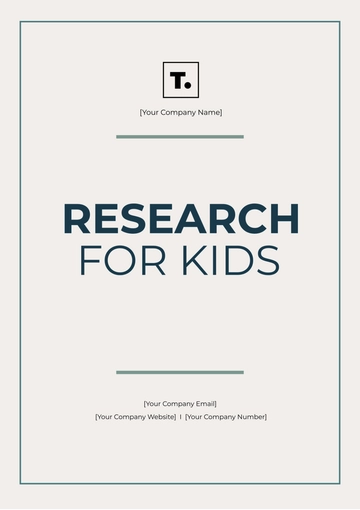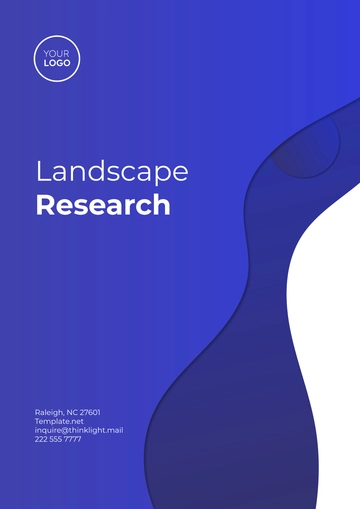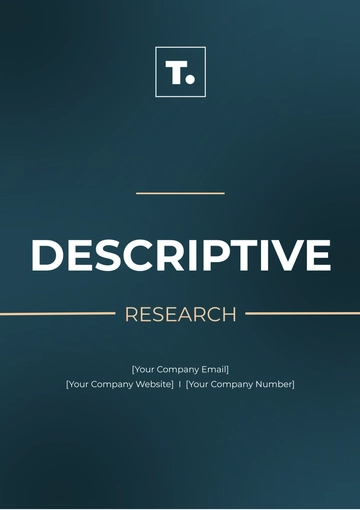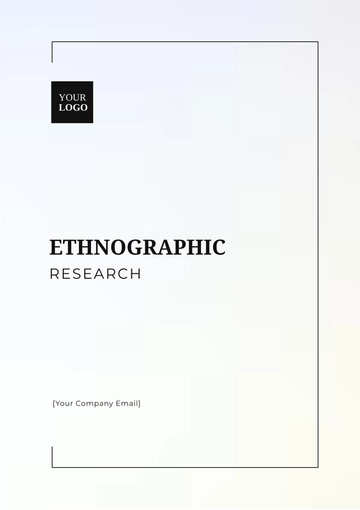Free Sales Social Media Lead Generation Research
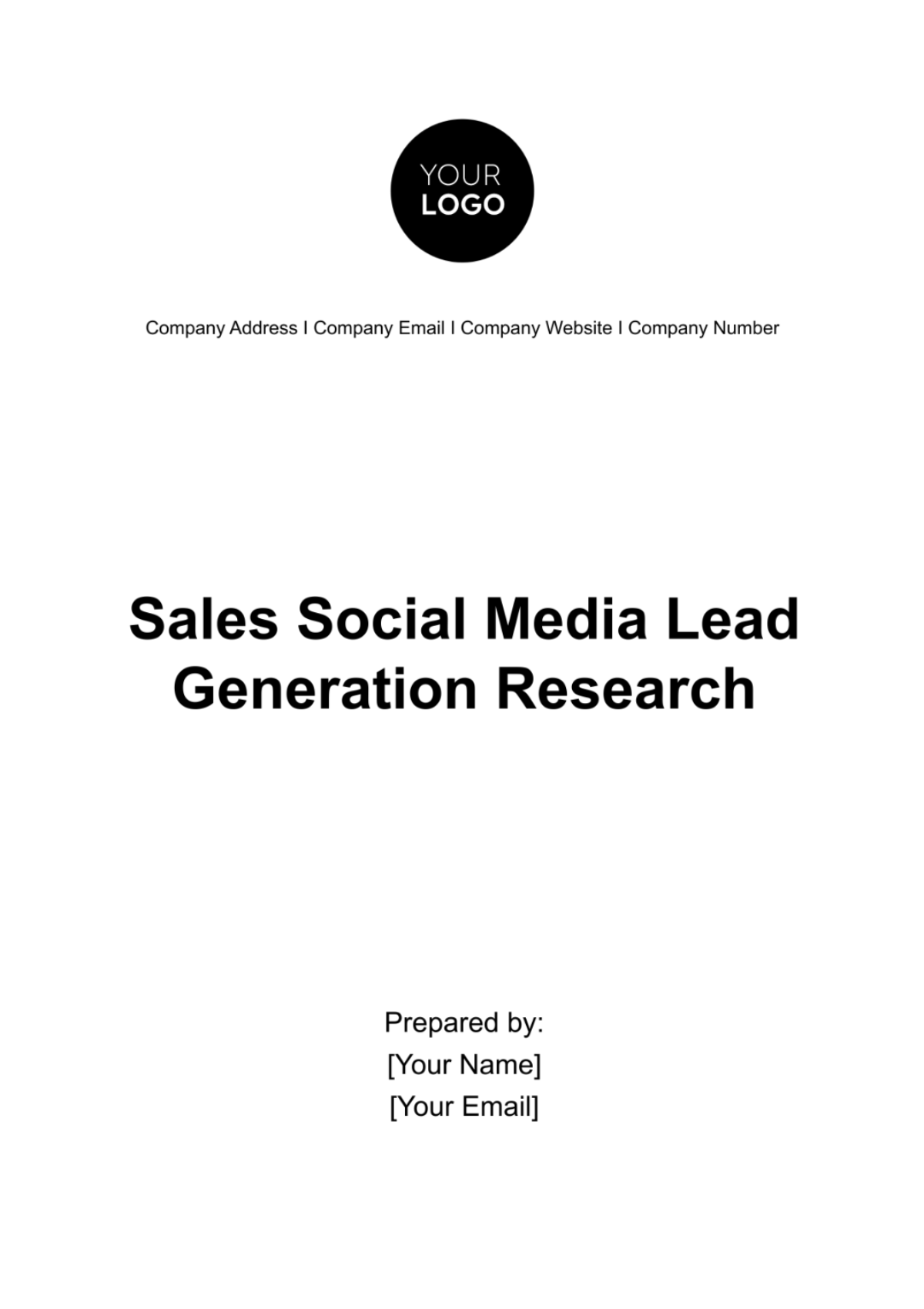
I. Introduction
Overview of Social Media Lead Generation
Social media lead generation is the process of identifying, attracting, and converting potential customers from social media platforms. It has evolved significantly over the years and is now a critical component of a company's marketing and sales strategy.
Purpose of the Research
The purpose of this research is to provide a comprehensive understanding of the state of social media lead generation in the years [2050] and beyond. By delving into current trends, emerging technologies, best practices, and effective platforms, this document aims to equip sales and marketing professionals with the knowledge necessary to thrive in an ever-changing digital landscape.
II. Current State of Social Media Lead Generation (2050)
A. A Snapshot of the Present
As of [2050], social media is more intertwined with daily life than ever before. People spend a significant portion of their day on various platforms, making them fertile ground for lead generation. The lines between social media, e-commerce, and entertainment have blurred, creating new opportunities and challenges for businesses.
B. Key Players and Industries
The key players in social media lead generation include established giants like Facebook, Instagram, and LinkedIn, along with emerging platforms designed for niche markets. Industries benefiting most include e-commerce, health tech, fintech, and the metaverse industry itself, which is growing rapidly.
C. Data Privacy Regulations and Their Impact
Stricter data privacy regulations have shaped the way businesses conduct lead generation. Companies must now emphasize transparency, consent, and data stewardship. Consumers have more control over their data and expect businesses to respect their privacy.
III. Emerging Trends
A. AI and Automation
AI-powered chatbots, recommendation engines, and automation have transformed the lead generation process, making it more efficient and personalized. AI can analyze vast datasets in real-time to predict customer behavior and preferences.
B. Augmented and Virtual Reality
AR and VR technologies are being used to create immersive experiences, allowing potential customers to engage with products and services in entirely new ways. Virtual showrooms, interactive product demos, and virtual try-ons have become common practices.
C. Influencer Marketing
Influencer collaborations continue to be a dominant trend. Influencers have become both content creators and salespeople, acting as trusted sources of information and driving engagement and conversions. They have access to AI-powered tools that help them identify and engage with their target audience effectively.
D. Blockchain and Decentralized Networks
Blockchain are used for secure data management and trust-building in social media lead generation. Smart contracts ensure transparency and trust in transactions. Decentralized social media networks have emerged, giving users more control over their data and interactions.
IV. Best Practices
A. Content Marketing
Creating valuable, educational, and engaging content remains a cornerstone of social media lead generation. Content is now often personalized using AI to match individual preferences and behaviors.
B. Personalization
Tailoring content and offers to individual preferences is now standard practice, thanks to advanced AI algorithms. This personalization extends to the entire customer journey, making every interaction feel tailored to the individual.
C. Data Analytics and AI-Driven Insights
Data analysis tools, powered by AI, provide real-time insights to help businesses make informed decisions. Predictive analytics is a key component, in helping businesses anticipate customer needs and behaviors.
D. Omni-Channel Approach
The ability to connect with leads across multiple channels ensures a consistent and engaging customer journey. Chatbots, social media, email, and voice assistants are seamlessly integrated to provide a unified experience.
V. Effective Platforms
A. Facebook
Still a dominant platform, Facebook offers advanced ad targeting and AI-driven lead generation tools. The platform has integrated with the metaverse, providing businesses with new ways to engage with potential customers in virtual environments.
B. Instagram
With a highly engaged user base, Instagram is the ideal platform for visually appealing lead generation campaigns. Augmented reality filters and interactive stories have become key tools for engagement.
C. LinkedIn
LinkedIn remains the professional network of choice for B2B lead generation and networking. Its AI-powered recommendation engine helps businesses identify potential clients and partners more efficiently.
D. TikTok
Emerging as a platform for innovative short-form video campaigns, TikTok is especially popular among younger audiences. AI-driven algorithms help businesses reach the right demographics with engaging content.
E. Emerging Platforms
Niche platforms like [Fictional Platform X] cater to specialized markets and offer unique lead generation opportunities. These platforms often focus on specific industries or interests and provide tailored advertising solutions.
VI. Case Studies
A. Company A - Harnessing AR for Lead Generation
This case study showcases how Company A utilized augmented reality to drive engagement and conversions. By allowing customers to virtually try on clothing and accessories, the company saw a significant increase in sales and a decrease in product returns.
B. Company B - Building an Omni-Channel Approach on Instagram
Explore how Company B successfully adopted an omni-channel approach on Instagram to connect with a global audience. By integrating chatbots, augmented reality features, and personalized content, the company achieved a 30% increase in conversion rates.
VII. Challenges and Solutions
A. Data Security and Privacy Concerns
Stricter regulations require companies to prioritize data protection and transparency. Solutions involve secure data storage, user-consent management systems, and blockchain technology to ensure data privacy and integrity.
B. Ad-Blocking Technology
The rise of ad-blockers necessitates creative and non-intrusive approaches to lead generation. Businesses have started focusing on creating native, value-added content that aligns with customer interests to bypass ad blockers.
C. Evolving Algorithms
Staying updated with platform algorithms is crucial for maintaining the effectiveness of lead generation campaigns. AI-driven tools assist in staying on top of algorithm changes and adjusting strategies in real time.
VIII. Future Predictions
A. The Role of AI and Chatbots
AI and chatbots will play an even more significant role, providing real-time customer service and personalized lead generation. AI-driven chatbots will not only engage with potential customers but also assist them throughout their buying journey.
B. The Metaverse and Its Implications for Lead Generation
The development of the metaverse will open new avenues for immersive and interactive lead generation campaigns. Virtual showrooms, augmented reality product trials, and virtual sales agents will become standard in the metaverse.
C. 6G and Its Impact on Social Media
As 6G technology emerges, it will offer higher speeds and greater connectivity, expanding opportunities for real-time lead generation. The ability to engage with potential customers in virtual environments with zero latency will become a game-changer for businesses.
IX. Conclusion
Social media lead generation in the year [2050] and beyond is a dynamic and evolving landscape. To remain competitive, businesses must adapt to emerging technologies, embrace data privacy regulations, and focus on building trust with consumers. By staying informed and employing the best practices outlined in this document, companies can excel in the ever-changing world of social media lead generation.
X. Appendices
A. Glossary of Key Terms
Social Media Lead Generation
Definition: The process of identifying, attracting, and converting potential customers from social media platforms.
Usage: Social media lead generation is essential for modern businesses looking to expand their customer base through online platforms.
Metaverse
Definition: A collective virtual shared space that incorporates aspects of augmented reality, virtual reality, and the internet.
Usage: The metaverse is expected to revolutionize the way people interact, work, and play online.
AI-Driven Insights
Definition: The use of artificial intelligence to analyze data and provide valuable information and predictions.
Usage: AI-driven insights help businesses make informed decisions about customer behavior and market trends.
Omni-Channel Approach
Definition: The practice of providing a consistent and integrated experience for customers across multiple communication channels.
Usage: An omni-channel approach ensures that customers receive a seamless experience whether they engage through social media, email, or in-store interactions.
Virtual Showroom
Definition: A digital environment where customers can explore and interact with products as if they were in a physical store.
Usage: Virtual showrooms have become a popular feature in the metaverse, offering immersive shopping experiences.
- 100% Customizable, free editor
- Access 1 Million+ Templates, photo’s & graphics
- Download or share as a template
- Click and replace photos, graphics, text, backgrounds
- Resize, crop, AI write & more
- Access advanced editor
Discover the ultimate solution for Sales Social Media Lead Generation Research with Template.net. Our meticulously crafted template is fully editable and customizable, empowering you to tailor it to your unique needs effortlessly. Seamlessly edit in our Ai Editor Tool to unlock limitless possibilities and elevate your lead generation strategy like never before.



